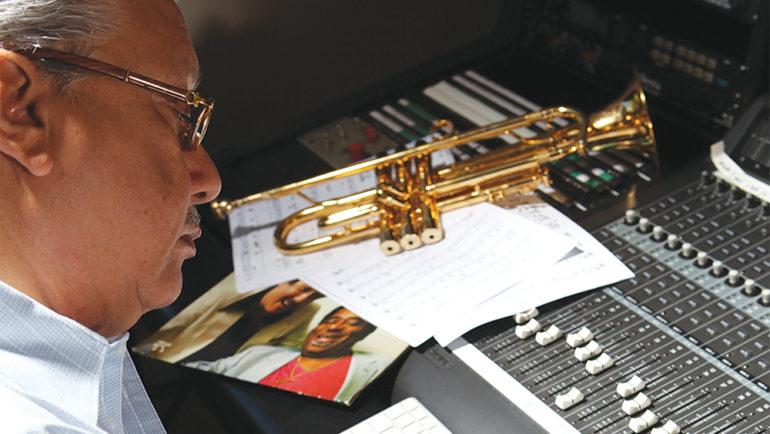How Clint Eastwood and Arturo Sandoval Bonded Over Jazz for ‘The Mule’ Score
By Jon Burlingame
LOS ANGELES (Variety.com) – Cuban-born musician Arturo Sandoval is well known as a top trumpeter and recording artist in the jazz world. Now, at 69, he’s thinking of changing careers, and hopes his score for Clint Eastwood’s “The Mule,” based on the story of an elderly Midwestern horticulturist who stumbles into a job transporting cocaine for the Mexican cartel, will be a big step in that direction.
Eastwood, who plays jazz piano, usually composes the themes for his films, and sometimes even entire scores, as he did for “Mystic River,” “Million Dollar Baby,” “Changeling” and others. But thanks to Andy Garcia, who played Sandoval in the HBO biopic “For Love or Country,” and who co-stars in “” as a drug lord, the director and musician met at Warner Bros., initially to discuss creating the Latin source music that would be needed for a party at Garcia’s character’s lavish digs.
Sandoval brought his portable keyboard, improvised a few cues against the picture, “and I think at that moment he made a decision to hire me as a composer,” Sandoval says of Eastwood.
Eastwood visited Sandoval’s studio every day for a week and could not resist sitting down at Sandoval’s grand piano (once owned by another jazz great, Oscar Peterson). He also listened to the composer’s demos and made suggestions about the music. Eastwood preferred cues to be “extremely simple, not too much movement,” Sandoval says.
Not too much music, either: there are only about 20 minutes of underscore in “The Mule.” It opens and closes with a warm, pastoral theme, featuring Sandoval’s mellow trumpet (“like a bed of roses,” he says). There are quiet string cues for Eastwood’s character’s strained relationship with his family, and darker hues for scenes involving the increasingly dangerous drug bosses.
The film’s theme — the importance of family above all else — resonated with Sandoval, who defected to the U.S. in 1990 while on a tour of Europe with his mentor Dizzy Gillespie. His wife and son were with him, but he agonized over having left his parents behind. Denied permission to leave Cuba by Fidel Castro himself, they eventually escaped via fishing boat and spent their remaining years in Miami. “Family is the most important thing,” he says.
The entire score was written and recorded in 2½ weeks. Sandoval not only played trumpet, but he also conducted an 82-piece orchestra (on, naturally, the Eastwood Scoring Stage at Warner Bros.) as well as a 20-piece big band for the source music (a mariachi, a cumbia) and a rousing jazz number that, unfortunately, didn’t make it onto the soundtrack.
While “The Mule” is Sandoval’s biggest exposure as a composer yet, it’s not his first film score. That was “For Love or Country,” the story of his life, and it won him an Emmy in 2001. He’s no novice at composing for orchestra. A classically trained musician, he has written a trumpet concerto and a ballet for the Kennedy Center. Performing on other film scores by the likes of Dave Grusin and Hans Zimmer, he’s been a part of the movie-music scene for decades.
“My dream is to get busy enough writing film scores so that I don’t have to get on a plane every day of my life,” he says, referring to his nonstop touring schedule. “I love to play, of course, but I’m getting too old to do this all year long.”
Eastwood’s longtime music editor Chris McGeary, who produced the score, agrees that Sandoval’s future may lie in film scoring. “We were amazed with what he came up with,” McGeary says. “He’s the real deal.”
Eastwood actually did compose a theme for “The Mule,” McGeary discloses, but the veteran director liked Sandoval’s better. Eastwood told Sandoval: “Go with yours, don’t even bother with mine.”

